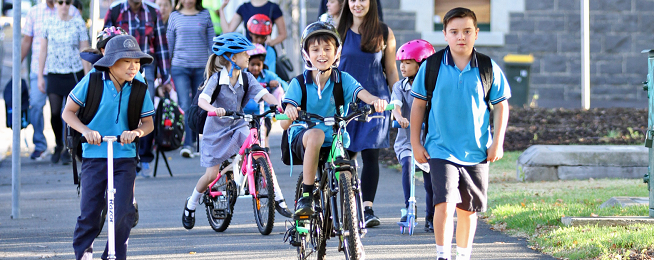Important research from Japan has established that an active childhood produces a smarter healthier brain in later life.
And it sounds a warning: reducing childhood exercise to create more time for academic learning may actually have the opposite effect than intended.
A team from Tamagawa and Kobe Universities has discovered changes in the brain’s neural network and cortex structure that underlie the positive association between childhood exercise and the maintenance and promotion of cognitive function when people are older.
All those youngsters zipping about on our trail networks during COVID appear to have a bright future when fully grown.
The researchers showed that people who are physically active during childhood (up to 12 years of age) have higher cognitive functions in later life.
The same effect did not occur if the children exercised after 12 years of age.
Exercise resulted in modular segregation of brain networks, strengthened inter-hemispheric connectivity, greater cortical thickness, lower levels of dendritic arborization and decreased density.
It is known that during childhood, the formation of the brain’s network is susceptible to environmental and experience-related factors. It is thought that exercise during this period optimizes brain network development.
The research group conducted the study on 214 participants ranging in age from 26 to 69.
Childhood exercise was assessed via questionnaire and cognitive function was measured. The image data from brain MRI was analysed.
"The present findings suggested that the recently increasing incidence of inactivity among children may impair cognitive function and brain health in later life," the researchers concluded.
"Specifically, in an effort to increase academic performance, the policies that reduce or replace exercise opportunities during the school day may impair cognitive development as well as cognitive function and brain health in later life.
"Considering the current rapid aging of the population, our data provide evidence suggesting that children should receive more daily exercise opportunities to extend a healthy life expectancy, especially since it relates to life-long cognitive function and brain health.
"Given that inhibitory control plays a prominent role in life-long well-being, including academic and professional success, reduces the likelihood of having a criminal record, and promotes marital harmony and healthy behaviours, our findings have far-reaching implications for the public health and educational sectors."
Become our friend
Find out more about Bicycle Network and support us in making it easier for people to ride bikes.


